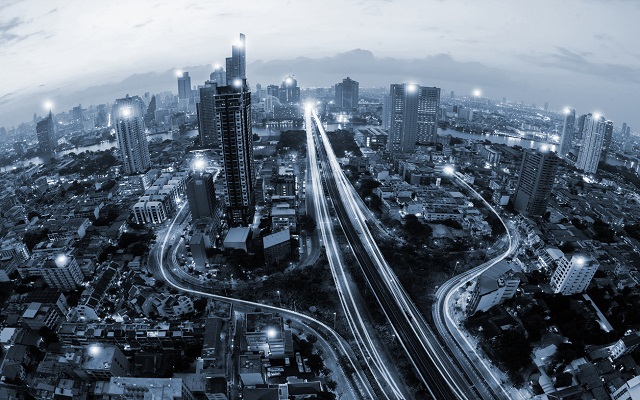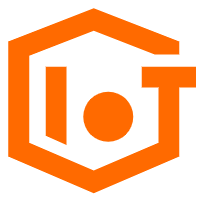
The Internet of Things (IoT), empowered by cloud computing, is evolving at a rapid rate in preparation for a mass roll out to the global consumer market. One of the many practical manifestations of IoT technology comes in the form of the smart city, aimed at leveraging data insights to give citizens a better quality of life in terms of convenience and efficiency. These smart cities, designed to optimize the way we live and work, are built on a foundation of connectivity, big data insights, security and compliance.
From Europe to Asia, regions across the globe are heavily invested in developing the smart city as the future standard of living.
Europe was the first continent to utilize connected technology in developing smart cities, building the model on which other countries have based their efforts. Smart cities in Europe are well-known for their focus on sustainability, both environmental and social. Environmental initiatives include developing green or low-carbon solutions, and social initiatives include addressing citizens’ needs and cultivating a strong, positive culture. Significant examples are Smart City Wien in Vienna, Amsterdam Smart City, e-mobility development and the leading of Smart Cities Expo World Congress in Barcelona.
These cities exemplify how technology can be applied across the different pillars of a community in order to strengthen it, from transportation to energy to commerce.
Comparatively, the United States has a slower and narrower scope on its development of smart cities. However, U.S. cities are now stepping up their game to offer smarter solutions for urban developments with a boost from industry disruptors, largely contributed by successful start-ups such as Uber and Airbnb, which introduced the sharing economy model to the mainstream via their core businesses of transportation and tourism, respectively.
Recently named "2016's Best Smart City" at the Global Smart City Awards, New York City has emerged at the forefront as one of the country's most outstanding examples of a smart city. Its most notable sustainable initiative is called Building a Smart + Equitable City, whih aims to expand connectivity among citizens and implement an IoT ecosystem in the economy.
Other cities such as San Francisco, Boston, and Seattle have followed suit and are investing in smart technology to roll out across their infrastruture. San Jose has been ollaborating with Intel since 2014 on achieving its "Green Vision," which track and analyze real-time data to design solutions to improve air and water quality, reduce noise pollution, and increase transportation efficiency.
With 60 percent of the world’s population, Asia stands to benefit the most from developing smart cities. According to IDC’s Worldwide Internet of Things Forecast Updates, 2016 – 2020, the IoT market in Asia-Pacific is expected to reach 8.6 billion units by 2020 and create an US$583 billion market opportunity.
In this emerging region, several cities stand out, including the South Korean city of Songdo, with $39.5 Billion projected to be spent on smart city technology in 2016, and Singapore with its "Smart Nation" program, whih employs a network of sensors designed to support better living, strengthen communities, and create more job opportunities.
The China market has a great need for smart city solutions, as its urban areas face several challenges, including traffic congestion and overwhelming demands in the energy and healthcare sectors. There is a tremendous need to upgrade current infrastructure with more efficient models, and smart cities may just be the answer China is looking for. Yinchuan is slated to be the blueprint 'smart city' for China in terms of its smart traffic management, garbage collection, and telemedicine services.
From new developments in ICT technology to mass market IoT, the rise of the smart city has been a long time coming and is a much-needed solution to the many challenges urban cities around the world are currently faced with. Each solution offered by these smart cities is powered by data-driven insights.
An IoT ecosystem is built on the connectivity between products that can gather different kinds of data. The large volume of data is stored, analysed and interpreted to gain valuable insights into a user’s behaviour patterns. High performing smart cities will require massive IoT ecosystems in order to function properly.
From millions of sensors generating volumes of data, governments and businesses can make more efficient use of their resources by understanding how citizens behave, including how they move, how much energy they use, and how they drive their cars.
Big data currently plays an integral role in the development of smart cities, helping people design products and infrastructure that can respond to a citizen’s needs as they evolve. It may be just the tip of the iceberg, but there’s no doubt cities will only continue to get smarter as we better learn to harness the power of data-driven solutions in IoT.

2,603 posts | 747 followers
FollowAlibaba Clouder - June 11, 2018
Alibaba Clouder - May 23, 2019
Alex - July 9, 2020
Alibaba Cloud Indonesia - August 5, 2021
Alibaba Cloud Project Hub - November 16, 2021
Alibaba Clouder - June 20, 2018

2,603 posts | 747 followers
Follow IoT Platform
IoT Platform
Provides secure and reliable communication between devices and the IoT Platform which allows you to manage a large number of devices on a single IoT Platform.
Learn More IoT Solution
IoT Solution
A cloud solution for smart technology providers to quickly build stable, cost-efficient, and reliable ubiquitous platforms
Learn More AIRec
AIRec
A high-quality personalized recommendation service for your applications.
Learn More Artificial Intelligence Service for Conversational Chatbots Solution
Artificial Intelligence Service for Conversational Chatbots Solution
This solution provides you with Artificial Intelligence services and allows you to build AI-powered, human-like, conversational, multilingual chatbots over omnichannel to quickly respond to your customers 24/7.
Learn MoreMore Posts by Alibaba Clouder
Raja_KT March 21, 2019 at 3:03 pm
Smart city solutions are like mandatory now especially densely populated cities. Big data, IoT, IoV, Cloud computing, ET city, LoraWAN, ZigBee solutions.....just to name a few are making inroad , fast and furious.